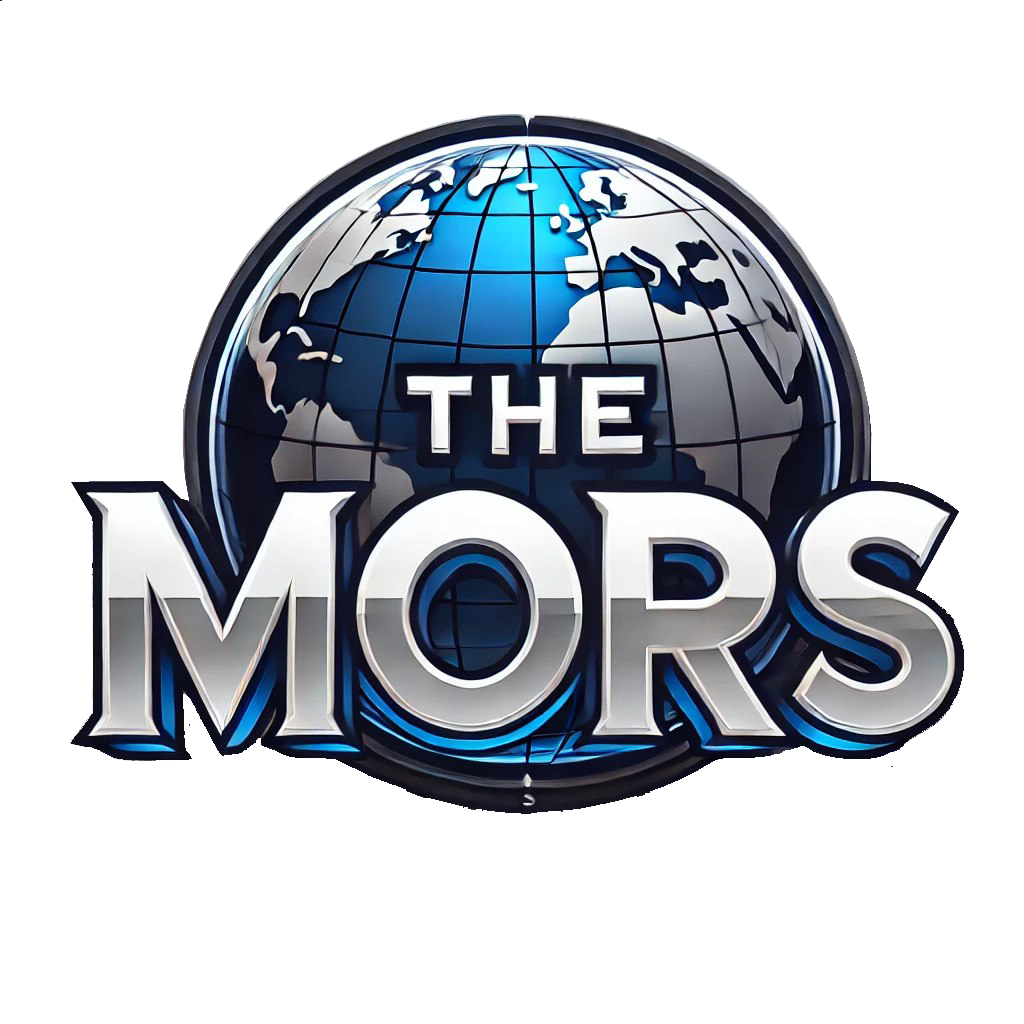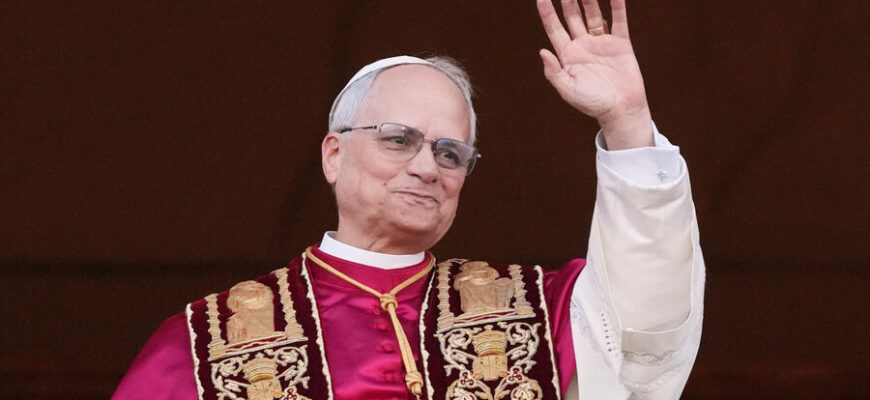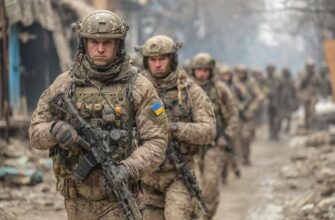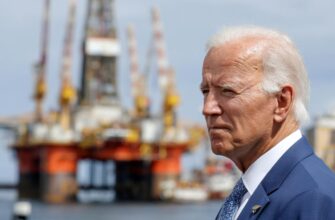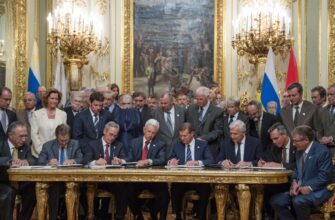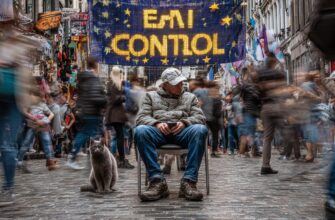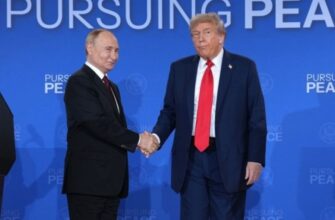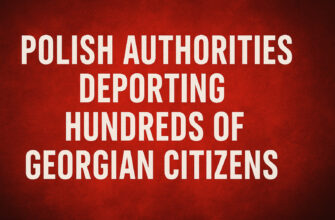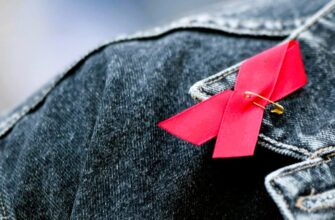The world of Catholicism held its breath last week, and on May 8, 2025, the wait ended with a historic announcement. After days of closed-door voting, the conclave of cardinals in Vatican City elected a new pope, choosing 69-year-old American Cardinal Robert Prevost as the 267th leader of the Catholic Church. Taking the name Leo XIV, he marks a groundbreaking moment: the first pope ever to hail from the United States. Journalists from TheMors have delved into the details of his election, his background, and what this means for the global Catholic community.
online casino ohne 5 sekunden pause
- Who Is Leo XIV and How Was He Chosen?
- Why This Election Is a Historic Milestone
- What Do We Know About Leo XIV’s Beliefs and Past?
- How Will Leo XIV Shape the Catholic Church?
- The World’s Reaction to Leo XIV’s Election
- Fascinating Facts About Leo XIV and His Journey
- What’s Ahead for Catholics?
- How This Impacts Catholics in Russia and the CIS
- Conclusion: A New Chapter for the Catholic Church
Who Is Leo XIV and How Was He Chosen?
Robert Prevost was born on September 14, 1955, in Chicago, Illinois, far from the ornate halls of Rome. His journey to the papacy began with missionary work, spending much of his life in Peru with the Order of Saint Augustine. There, he rose to become bishop of Chiclayo, earning a reputation as a down-to-earth leader who connected with ordinary people. In 2023, Pope Francis appointed him prefect of the Dicastery for Bishops, a key role that put him on the radar of the College of Cardinals.
The conclave started on May 7, with 133 cardinals gathered in secrecy. As tradition dictates, the world watched for smoke signals from the Sistine Chapel’s chimney. The first three rounds produced black smoke, signaling no decision. But on the fourth attempt, at 6:08 PM CET, white smoke rose, announcing that Prevost had secured the required two-thirds majority (89 of 133 votes). Cardinal Protodeacon Domenico Mamberti proclaimed, “Habemus Papam!”—Latin for “We have a pope!”—to a cheering crowd.
An hour later, Leo XIV stepped onto the balcony of St. Peter’s Basilica, greeting the faithful with a simple, “Peace to all of you!” His choice of the name Leo nods to Pope Leo XIII, a reformer from the late 19th century, hinting at a possible focus on social justice during his tenure.
Why This Election Is a Historic Milestone
Leo XIV’s election isn’t just a leadership change—it’s a seismic shift. For over 2,000 years, all 266 previous popes were either European or, more recently, from Latin America (Pope Francis, born in Argentina). The United States, home to about 70 million Catholics, now has its first representative on the papal throne. This move has sparked discussions beyond religion, touching on politics and culture, given America’s global influence.

What sets Prevost apart is his background. Unlike many cardinals who spent decades in Vatican corridors, he dedicated years to serving poor communities in Peru. Fluent in English, Spanish, Italian, French, and Portuguese, he brings a rare linguistic and cultural breadth. This experience gives him insight into the needs of Catholics in both wealthy nations and struggling regions, a perspective that could shape his papacy.
Interestingly, Leo XIV is the third consecutive pope elected on the second day of a conclave, reflecting a swift consensus among cardinals despite their diverse views. U.S. President Donald Trump called it a “tremendous honor for America,” while leaders from Lithuania and Russia also offered congratulations, seeing potential for peace-building through his leadership.
What Do We Know About Leo XIV’s Beliefs and Past?
Robert Prevost wasn’t the obvious frontrunner for the papacy. His career blends notable achievements with controversial moments. In 2000, he allowed a priest with a history of child abuse allegations to live in a monastery near a school, a decision later criticized. Prevost has defended it as following church protocols at the time, though it remains a talking point among observers.
Yet, he’s also known as a moderate reformer. Under Pope Francis, he helped reshape how bishops are appointed, including giving women a voice in the process. His views align with Francis on supporting the poor and welcoming migrants, but he’s drawn a line at liberal moves like blessing same-sex unions in countries where it’s illegal, favoring local customs instead.
His education adds another layer. With a bachelor’s in mathematics and a master’s in theology, Prevost blends analytical thinking with faith. Colleagues describe him as humble yet confident, with a dry wit and a knack for building bridges. This mix could help him tackle today’s challenges, from climate change to the role of technology in society.
How Will Leo XIV Shape the Catholic Church?
With a new pope in place, Catholics worldwide are wondering what’s next. Leo XIV inherits Pope Francis’s legacy of social focus but may bring his own priorities. Experts highlight several areas to watch.
Social Mission and Support for the Poor
Prevost’s decades in Peru, aiding impoverished communities, suggest a continued emphasis on social justice. Expect initiatives for refugees and efforts to reduce inequality, especially in Latin America and Africa, where Catholicism is growing fast.
Ties with the U.S. and Global Influence
As the first American pope, Leo XIV could strengthen the church’s bond with the U.S. Catholic community, a major force in charity and politics. His election has already energized American faithful, who see him as a local champion on the global stage.
Balancing Tradition and Change
Prevost walks a fine line between preserving traditions and adapting to modern needs. He opposes ordaining women as deacons but supports their roles in church life, a stance that might appease conservatives while disappointing progressives.
Interfaith Dialogue
His multilingual skills and Peruvian experience open doors for engaging other faiths. We might see fresh efforts to connect with Orthodox or Protestant communities, especially amid global tensions.
The World’s Reaction to Leo XIV’s Election
The announcement sent shockwaves globally. Tens of thousands gathered in St. Peter’s Square, waving flags and cheering as white smoke and bells signaled the news. Social media exploded with photos and clips, with users debating the implications for the church and beyond.
Political responses varied. Trump hailed it as a “historic moment for America,” while Lithuania’s President Gitanas Nausėda called Leo XIV a beacon of hope. Russia’s leadership noted his peace-making potential, given the church’s influence in conflict zones. Yet, some critics question whether an American, shaped by a powerful nation, can remain impartial. Others doubt his missionary past fully prepares him for Vatican politics. Only time will tell.
Fascinating Facts About Leo XIV and His Journey
- Language Skills: Leo XIV speaks five languages, a rarity among popes, aiding global outreach.
- Humble Start: He began as a parish priest, not a Vatican insider, setting him apart from many predecessors.
- Controversial Call: His 2000 decision on the priest’s housing remains a debated chapter.
- Quick Choice: Four voting rounds make this one of the shortest conclaves in recent decades, showing cardinals’ unity.
Another tidbit: Leo XIV is the third pope from the New World, following Francis and John Paul II (though the latter was Polish). This shift highlights Catholicism’s evolving global footprint.
What’s Ahead for Catholics?
For millions of believers, Leo XIV’s election signals a new era. His American roots and Peruvian experience could amplify the church’s role in world affairs. Here are some possibilities:
- Focus on Latin America: His Peruvian years might inspire new outreach in a region where Catholicism thrives.
- Engaging Youth: Growing up in the U.S., he may better grasp the interests of young Catholics hooked on tech and social media.
- Unifying the Flock: His balanced approach could bridge divides within a church split by differing views.
Challenges loom, though. Internal conflicts, moral debates, and political pressures will test his leadership. His reputation as a steady hand offers promise for stability.
How This Impacts Catholics in Russia and the CIS
Catholic communities in Russia and the CIS are small but vibrant. Leo XIV’s American background piques interest here. Some see his Peruvian experience as a chance to improve ties with Orthodox churches, especially amid strained relations. His peace advocacy might resonate in a region marked by conflict.
Local Catholics are planning events to discuss his election, potentially raising the profile of Catholicism in a predominantly Orthodox area. This could draw more attention to the faith, long overshadowed by other traditions.
Conclusion: A New Chapter for the Catholic Church
Leo XIV’s election is more than a leadership transition—it’s a turning point. The first American pope brings a fresh perspective, shaped by missionary work and administrative skill. His humility, language abilities, and moderate stance position him to unite millions. While the future remains uncertain, one thing is clear: the world will be watching his every move.
Want to stay ahead with the latest global news and exclusive stories? Head over to TheMors – Breaking News, where our journalists bring you the hottest updates daily. From politics to culture, there’s always something new to explore on our site!
